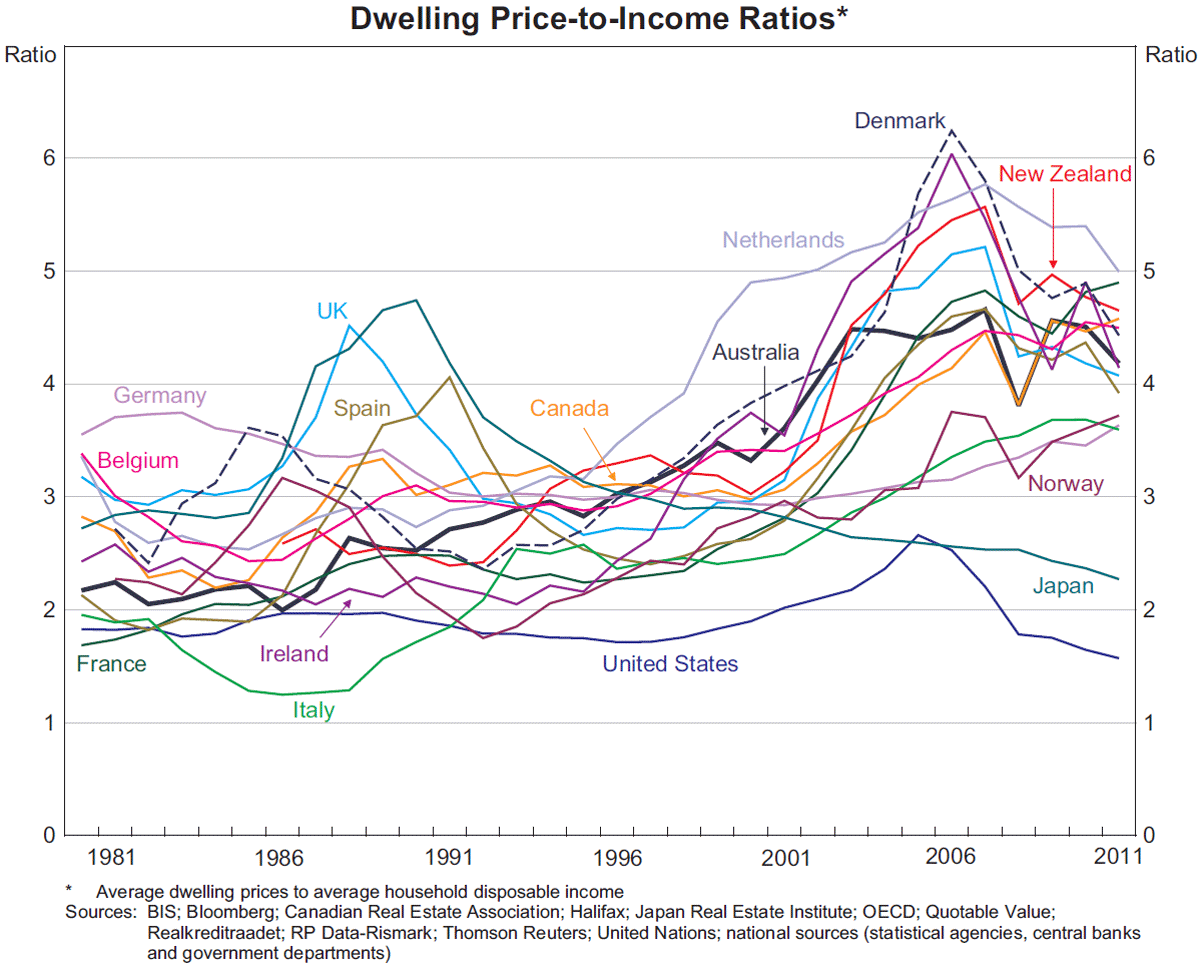This comparison from the Economist seems to suggest that outside certain countries (Japan, USA, Germany, South Korea) the purchasing power of worker's wages relative to housing has gone down substantially. Because even the price-to-earnings ratio has gone up, and wages in that period grew slower than overall earnings for inequality-related reasons which are already well-known:
http://www.economist.com/blogs/dailycha ... use-prices
Indeed, national charts (such as here for the UK) often suggest the same:

And this for several developed nations:

Does this actually mean what I think it means - I thought. Have the workers become poorer? This chart from Australia seems to indicate that this is the case - most of the price rise has been driven by leverage and mortgage term extension - an increase in indebtedness. The rise of earnings themselves, as well as the rise in number of earners, has contributed very little to the price increase:

Of course, the best possible comparison would be to take the average price of a square meter of property and check against median income for the 1970s and now. Still, this demonstrates that it is impossible to take the "real wage growth" rates at face value when it comes to adjusting for inflation and measuring the evolution of purchasing power, as the housing price rise has massively outstripped the growth in real wages.
Even more alarming is the fact that median wages for younger workers (18-29) seem to have decreased and not increased over the decades (at least, in the US - I haven't had the time to check other nations yet).


